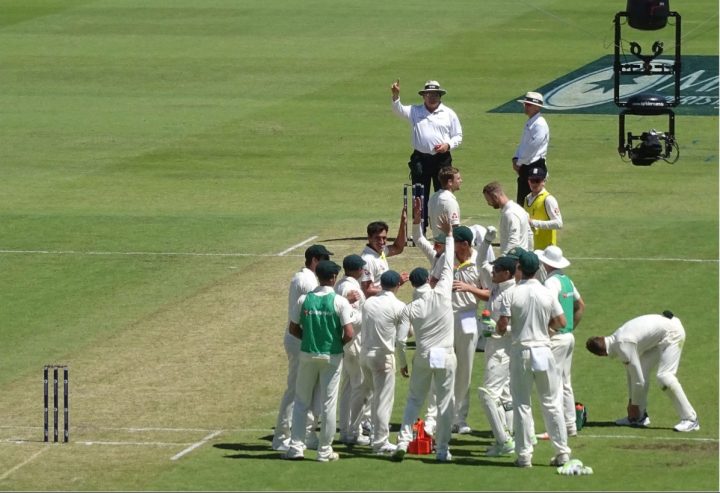I’m going to have to be straight with you. There are no two ways about it. In 2012, the BBC Sports Personality of the Year award will not be won by a cricketer.
This has hardly been a vintage summer for the public profile of our game. How different things were only a year ago, fresh from our imperious triumph over India.
Newly crowned world champions – the orb still warm in Strauss’s palm – we were the pride of the nation and the envy of every other British sport.
For a gilded few months, our cricketers were the cocks of the walk, the poster boys, the standard-setters. While the UK languished in other sports, our game stood out as a beacon of national achievement.
But popular tastes are, in all innocence, fickle, and my, how things have changed since last September.
It would be exaggerating to say that the last few months have been disastrous for the English cricket team. But they’ve certainly been deeply disappointing.
Two key series defeats and the loss of the number one ranking is one thing. The dismal and fractured tone of events is another, above all the sad departure of Strauss, and then the Pietersen affair, in which our cricketers were publicly portrayed (and rightly) as a shambolic bunch of grown men having tantrums over text messages.
Our cricketers’ loss of prestige coincided with an impossibly stupendous sequence of glories in other sports. As you will probably know, Team GB won twenty nine gold medals in the Olympics. Bradley Wiggins became the first Briton ever to win the Tour de France. And then came Andy Murray.
Right now, Mo Farah, Jessica Ennis and Victoria Pendleton are three of the very biggest celebrities in Britain. David Weir, and many other Paralympians, are also big box office. In this climate, let’s face it, we’re very unlikely to see Ravi Bopara on the front cover of GQ.
The dynamics behind this are multi-layered. All the people above are winners, which is something to celebrate in its own right. And because the Olympics were so wonderful and joyous, these champions caught a British imagination which was already at a fever pitch of patriotism and wonder.
Then there’s the novelty factor. For most people, Bradley Wiggins is a new figure in British public life. The summer has abounded with unfamiliar sports – triathlon, wheelchair basketball, dressage. As an audience, we enjoy a cast change and the lifting of the curtain to reveal an unexpected scene. By contrast, cricket seems all too mundane and workaday.
Meanwhile, these new heroes are unsullied – at least in our perception – by the more squalid aspects of sporting life. They embody a refreshing change from over-inflated egos and salaries, of arrogance, decadent or nefarious behaviour, drugs or cheating.
The stars of summer 2012 owe their appeal partly to the way they seem to represent the Corinthian virtues of true sporting behaviour. Their achievements are the fruit of hard work, dedication, self-denial and honesty.
True, cricketers have never remotely reached the depths which footballers have, with their proclivities for debauchery and the excesses of millionaire playboys who have lost touch with their roots.
But for those who cared to look closely, the KP saga was deeply uncharming, giving English cricket an air of juvenile and self-serving arrogance. On a wider scale, the tentacles of match-fixing still cast a murky shadow over the global game. By contrast, the sports which have dominated our consciousness this summer seem refreshingly uncorrupted and pure.
Cricket is by no means the biggest loser in this new epoch of British sporting life. The established box office team sports have all been diminished, most of all football, whose very name now symbolises under-achievement, excess and decay.
There is a major caveat to follow, however. As a nation, I doubt that we have really begun a profound and enduring love affair with handball, Omnium track cycling and football for the partially sighted – as laudable and worthwhile as those sports may be.
Our enthusiasm derives from the whole package of this summer’s events – the hype and intensity of all the interlinked experiences. The visits to the Olympic park, the Union Jack facepaint, the novelty and the sunshine. When these golden memories begin to fade, people will – probably – slowly find their way back to the sports with deeper roots in our culture, and that includes cricket.
Next year, there is no World Cup or Euros, and no Olympics, but there is a home Ashes series, the one cricket event with genuine mainstream appeal. In all likelihood – at least if England look like winning – cricket will return to somewhere near front-of-mind.
In the meantime, it’s actually a relief in many ways for English cricket to be out of the spotlight. It felt unfamiliar, and vaguely uncomfortable, because it’s not the natural way of things. We are conditioned to cricket just plodding along, beneath the surface, and minding its own business.
Our year in the sun was a heady but rather unreal experience. On reflection, we’re better off as we are now, keeping our cult heroes to ourselves, rather than sharing them with magazine covers and chat shows. The limelight doesn’t really suit us. We know our place.









The 2005 ashes led to a decline, and now reaching no1 has led to a decline. Strange isn’t it. Our cricketers don’t seem to deal well with broader fame. It’s all so weird. The perception of our ashes success down under was of a united team playing well as a unit (and the collective exceeding the individuals). Remember the sprinkler dance? Remember Swanns visor diaries? All distant memories now. Pietersen clearly isn’t the only ego in the dressing room.
The England cricket team was on a hiding to nothing in 2012. Even if we’d beaten all the opposition we faced, people would have said it’s only what’s expected of the world’s no 1 team, and the Test series against South Africa, world’s top two or not, was always bound to be overshadowed by the Olympics.
The Pietersen saga looks bad at the moment, but if it’s resolved within the next couple of months it’ll be looked back on as a storm in a teacup. It’s not been a great year for English cricket, but it’s where we go from here that counts.